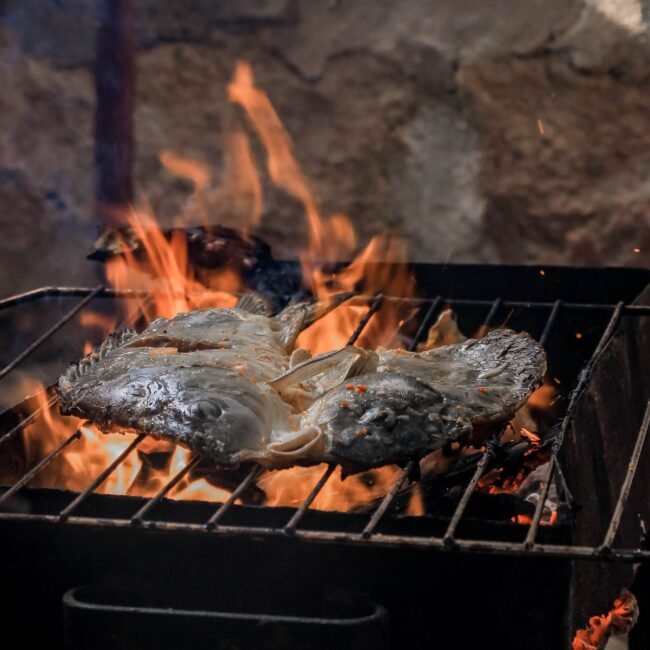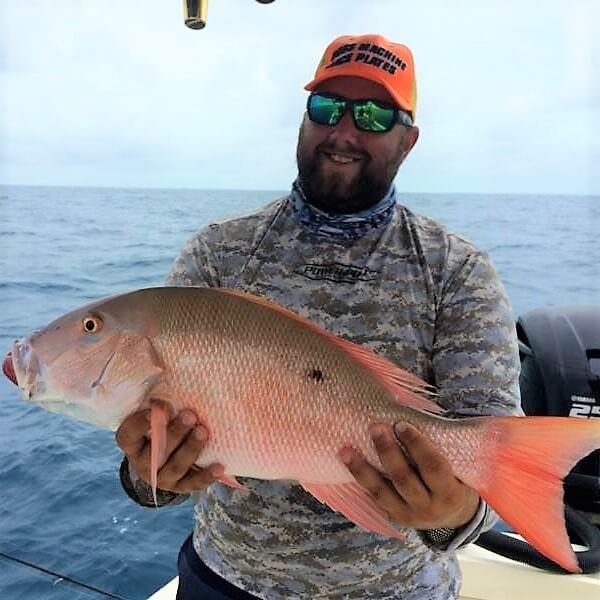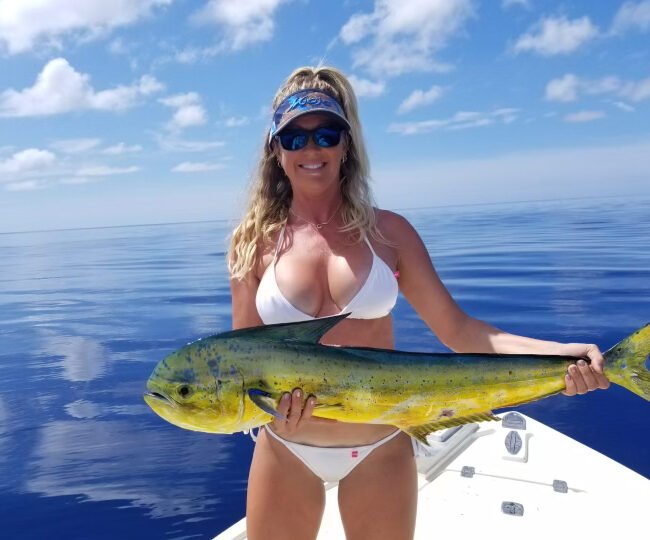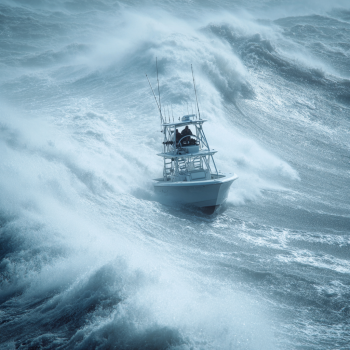
“We gotta turn into it!” Jake yelled. “Let the bow take it. She’s the highest point!”
“No!” Phil growled, eyes fixed on the crashing chaos ahead. “That points us the wrong way – points our tail to the port. Exactly to the port.”
“So what then?”
“We surf it. Go downhill. Use the waves to ride home.”
Act I: The Window
It was a picture-perfect late summer morning in Key West. The kind of day where the horizon seems endless, the breeze brushes your face like a whisper, and the ocean sparkles like polished glass. Captain Phil Pegley stood at the dock just after sunrise, sipping strong Cuban coffee and scanning the sky, as he always did. Jake, his longtime fishing partner, pulled up in a battered truck with two coolers full of fresh bait and a big grin.
“Tropical Storm Cristobal’s coming,” Jake said, glancing at his weather app. “But we’ve got a window. She’s not due in for a while, and you know how the fish behave before storms hit.”
Phil nodded. “They jump. They always do. Storm churns the pressure and wakes everything up. Let’s ride that window.”
By 9:00 a.m., they had pushed off, headed southeast into the deep blue. Fifteen miles offshore, they found their mark—15 miles out, they were in 650-foot-deep open water in the middle of nowhere. No boats in sight. Just a solitary stretch of ocean beneath a high sun and the distant edge of Cristobal’s swirling presence on the far southern horizon.
The mahi bite was on fire. Cast after cast, the green-and-yellow torpedoes hit the bait with fury. Doubles. Triples. Fish flopping on deck. In just under four hours, they filled the fish box with 60 vibrant mahi-mahi, each one more acrobatic than the last. It was a charter captain’s dream. The kind of trip stories are built on.
They turned back toward Key West, satisfied, salt-stung, and sun-baked. But somewhere between the turn and the marina, Jake looked over at Phil and said the fateful words.
“What if we went back?”
Phil raised an eyebrow. “Back out? You serious?”
“Storm’s not here yet. The fish are jumping like crazy. We got daylight. We can beat it.”
Against his better judgment—and with the adrenaline of a historic haul still pumping—Captain Phil turned the boat around.
Act II: The Turn
By the time they reached the same offshore coordinates, the sky had changed. The water was still strikingly blue, but the light had flattened. Cristobal’s leading edge had grown, the wall of gray creeping up like a curtain about to drop. But the fish were still there—and still hungry.
Another few mahi hit the deck before Phil checked the radar again. This time, the band of weather wasn’t just on the edge. It was enveloping them. Fast.
“Time to go,” Phil said, stowing rods and barking orders with a captain’s urgency.
Within minutes, the wind whipped to 35 knots. Then 45. Rain hit like needles. The waves built so quickly it felt supernatural—eight feet, ten feet, then higher. The sky darkened to slate. Visibility dropped to a terrifying quarter-mile. The calm morning was a memory now buried under sheets of water and the thunderous roar of wind.
A massive wave slammed broadside, crashing over the port side. Saltwater flooded the rear deck, hammering gear that had been triple-secured. Another wave followed—and another.
“Jake! Lock the hatches! Get to the bridge!” Phil shouted.
Jake fought through the chaos, slipping on the soaked deck, slamming hatches shut before climbing to the bridge, where Phil had both hands on the wheel, squinting through the deluge.
“We gotta turn into it!” Jake yelled. “Let the bow take it. She’s the highest point!”
“No!” Phil growled, eyes fixed on the crashing chaos ahead. “That points us the wrong way – points our tail to the port. Exactly to the port.”
“So what then?”
“We surf it. Go downhill. Use the waves to ride home.”
Jake looked at him like he was crazy.
“We’ll take ‘em from the stern. Ride ‘em back. Like chasing a moonlight tide,” Phil said. “But first—we have to pivot the boat.”
The boat was dead parallel to the crashing waves. A death sentence if they stayed that way. Every swell threatened to roll them. They had to rotate, get perpendicular, and then fall in line with the waves’ rhythm. Only Phil’s digital drive system—a nuanced piece of marine technology allowing precision throttle and rudder control—made this remotely possible. A traditional cable-shift system? They would’ve been fish food.
Phil gritted his teeth and began a calculated series of pulses—port power, starboard throttle, minute rudder taps. The boat groaned with each move. A wall of water crashed over the transom. The engine sputtered but held. The digital controls hummed under his fingers.
Then, finally, the bow began to swing.
The boat turned, falling into the path of the oncoming waves—now trailing stern-first toward home.
“Hang on!” Phil shouted. “We’re surfing this hell all the way back to port.”
Act III: The Grace
What followed was a 90-minute ordeal neither man would forget for the rest of their lives.
Each wave was a mountain. Each crash, a test of hull integrity, throttle timing, and divine mercy. Several times, green water poured over the top deck and down into the cockpit. The bilge pumps howled under the strain. The wind howled louder. The GPS flashed warnings. They had to stay exactly aligned with the wave direction. One bad angle, one moment of slack—and they would broach and capsize.
“We good?!” Jake called.
“As long as I can see that break in the sky dead ahead—we’re good,” Phil answered.
Rain blinded them. Thunder cracked so loudly Jake thought the electronics had blown. Lightning struck so close it buzzed in the metal rails.
At one point, Phil looked out and saw a wave rise higher than the hardtop. It was longer than the boat. It curled like a hand reaching down from heaven—or hell.
He muttered a prayer under his breath. “God, if you get us out of this, I’ll never ignore Your signs again.”
Whether it was faith, fate, or seamanship—probably all three—they didn’t turn over. They didn’t swamp. And they didn’t lose the engines. The digital drive responded to every fine adjustment. The bow never dipped too deep. The stern never got swallowed. And slowly, inch by harrowing inch, the shoreline came into view.
They broke through the worst of it as they crossed into the channel. The wind dropped. The rain softened. The sky, while still bruised and gray, parted enough for Phil to see the marina entrance like a vision.
The boat eased into the harbor. Lines were tossed, cleats tied. The engines died down with a final rumble. Both men sat in silence for a long time. The only sound was the dripping of rain and the distant call of gulls.
Jake finally exhaled, laughing half-maniacally. “We should’ve left well enough alone.”
Phil didn’t answer. He just looked up at the sky, then down at his soaked boots.
“Never again,” he whispered. “Unless I’ve got a signed note from God himself.”
And with that, they began unloading gear—quietly, reverently, like men who had just come back from a place no one else had seen.
While Captain Phil would never take risks with a charter, any driven expert wants to push limits – while still respecting the sea. It’s The Great Dance. You want a captain who has proven he can handle emergencies.
Book your Key West fishing trip today with Captain Phil at Reel Escapes Fishing Charters.
Incredible memories – minus the tropical storm – await.
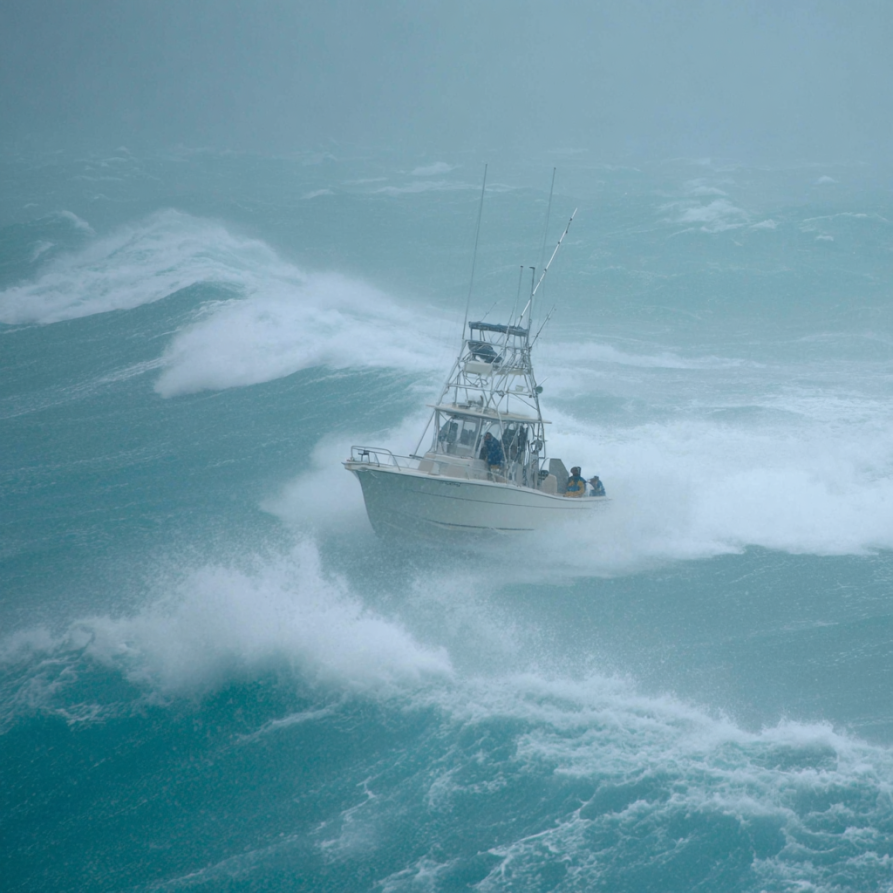
The Ultimate Guide to Catch-and-Cook Restaurants in Tampa Bay That Prepare Your Fresh Fish
One of the best parts of fishing in Tampa Bay is enjoying the reward after the trip.
Fishing Charters For Business: Why Fishing Charters Create Bonds, Close Deals, and Reveal Who People Really Are
There is a quiet truth that people in business, politics and entertainment have known for a long time: if you really want to understand someone, take them out of their usual environment.
Preserving Your Catch After a Charter: Storing, Transporting, and Food Safety Tips For Your Fish
This guide breaks down the best ways to store, transport and prepare your fish so you get the most out of your catch without losing quality or risking food safety issues.
The Real Cost of Running a Fishing Charter: Fuel, Gear, Maintenance & Hidden Expenses
Understanding what it takes to operate a charter helps you appreciate the expertise, equipment, and effort that go into every trip.
Understanding Tampa Fishing Regulations in Florida: Bag Limits, Seasons, and Responsible Angling
Fishing in Tampa Bay is one of the great privileges of living in or visiting Florida. Redfish cruising the flats, Snook sliding under mangroves, Trout drifting over grass beds—these fisheries make t
What Fishing Tides Really Mean for Your Trip: Understanding Incoming, Slack, and Falling Tides
If you spend enough time fishing in Tampa Bay, you’ll hear captains talk about tides the way meteorologists talk about weather patterns. Tides are more than just a rise and fall of water; they’re
How Captains Locate Fish: Inside the Technology and Techniques Used on Modern Fishing Charters
Fishing in Tampa Bay isn’t just about tossing a bait into the water and hoping for the best. Modern charter captains rely on a combination of technology, instincts, local knowledge, and real-time en
Boat Etiquette 101: How to Be the Perfect Guest on a Fishing Charter
Stepping onto a fishing charter in Tampa Bay is more than just hopping aboard a boat and waiting for fish to jump into your hands. It’s entering a small floating community where teamwork, awareness,
The 7 Most Common Fishing Mistakes First-Time Charter Guests Make (and How to Avoid Them)
Booking your first inshore fishing charter in Tampa Bay should feel like a mini-vacation, not a pop quiz. You’re here to chase Redfish on the flats, tangle with sneaky Snook under the mangroves, and

